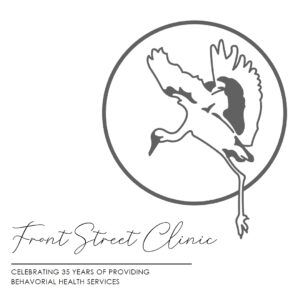
Depression and anxiety are the two most common mental health conditions in the US.1
Depression and anxiety disorders are often overlapping and interconnected conditions – meaning, depression can cause anxiety and vice versa. In some cases, one condition may develop before the other. However, the two conditions can also occur simultaneously.2
If you are currently taking medication for depression/ anxiety and not seeing an improvement in your symptoms, NeuroStar TMS may be a non-drug treatment option for you.
We offer free consultations on NeuroStar TMS.
To schedule a consult, call (360) 519-5585
For people with an anxiety disorder, the anxiety does not go away and can get worse over time. The symptoms can interfere with daily activities such as job performance, schoolwork, and relationships.3 Don’t let anxiety prevent you from living a full life!
Give us a call to discuss your options.
Front Street Clinic
Serving The Kitsap Peninsula
_________________________
The NeuroStar Advanced Therapy System is indicated for the treatment of depressive episodes and for decreasing anxiety symptoms for those who may exhibit comorbid anxiety symptoms in adult patients suffering from Major Depressive Disorder (MDD) and who failed to achieve satisfactory improvement from previous antidepressant medication treatment in the current episode.
The NeuroStar Advanced Therapy system is intended to be used as an adjunct for the treatment of adult patients suffering from Obsessive-Compulsive Disorder (OCD).
The most common side effect is pain or discomfort at or near the treatment site. These events are transient; they occur during the TMS treatment course and do not occur for most patients after the first week of treatment. There is a rare risk of seizure associated with the use of TMS therapy (<0.1% per patient).
Visit neurostar.com for full safety and prescribing information.
- Mental Health America website Quick Facts and Statistics About Mental Health | Mental Health America (mhanational.org). Accessed July 2022.
- Very Well Health website Depression and Anxiety: Signs, Symptoms, and Treatment (verywellhealth.com). Accessed July 2022.
- National Institute of Mental Health website. NIMH » Anxiety Disorders (nih.gov). Accessed July 2022.



